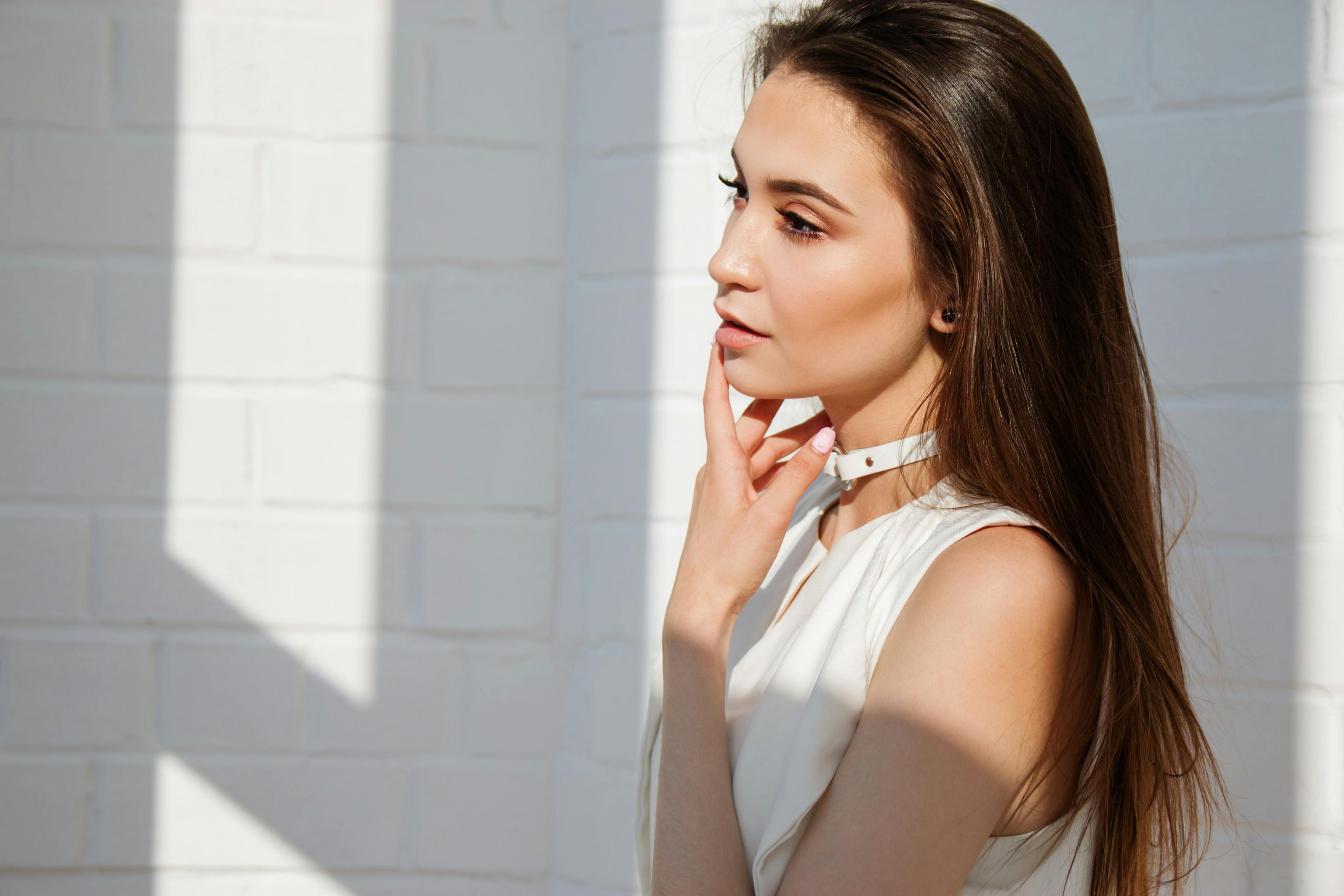Can I Wear Makeup After Cryotherapy

Cryotherapy is a medical procedure that involves the use of extremely cold temperatures to treat a variety of conditions. It can be used to help reduce inflammation and pain, as well as improve skin texture and tone. Many people are curious about whether or not they can wear makeup after cryotherapy. This article will provide you with information on the safety of wearing makeup after cryotherapy, as well as tips for how to properly apply makeup following the procedure.Cryotherapy is a treatment that uses extremely low temperatures to treat a variety of conditions, such as pain, inflammation and skin conditions. It involves exposing the body to subzero temperatures for short periods of time (typically 1-3 minutes) either in a full-body chamber or with a localized treatment device. During the procedure, the skin’s surface temperature is lowered to help reduce inflammation and other symptoms associated with certain medical conditions.
Is Makeup Safe to Wear After Cryotherapy?
Cryotherapy is a popular procedure for skin rejuvenation, and it is often used to reduce inflammation, treat acne, and improve overall skin tone and texture. However, there are some concerns about whether or not makeup is safe to wear after cryotherapy. While there is no definitive answer to this question, there are some safety tips that should be followed when wearing makeup after undergoing cryotherapy.
First and foremost, it is important to wait at least 24 hours before applying makeup after cryotherapy. This gives the skin time to heal and reduces the risk of irritation or infection. It is also important to avoid using harsh products like foundation or concealer directly on the treated area as this can further irritate the skin.
It is best to use light, hydrating products like tinted moisturizer or BB cream on the treated area instead of heavier foundation products. These products will provide light coverage while still allowing the skin to breathe and heal properly. Additionally, it is important to use hypoallergenic makeup products that are specifically designed for sensitive skin types in order to avoid any additional irritation or reactions.
Finally, it is important to make sure that all makeup brushes and sponges used on the treated area are cleaned regularly in order to avoid bacteria buildup which could lead to infection or inflammation. It is also recommended that you use a separate set of brushes and sponges for each product if possible in order to further reduce the risk of bacteria buildup.
Overall, while it may be tempting to apply makeup immediately after cryotherapy in order to cover up any redness or irritation caused by the treatment, it is important to wait at least 24 hours before doing so in order ensure proper healing of the skin. Additionally, it is best practice to use light hydrating products as well as hypoallergenic makeup specifically designed for sensitive skin types in order ensure minimal irritation or reactions post-treatment.
Benefits of Cryotherapy
Cryotherapy is a popular medical treatment that involves exposing the body to extremely cold temperatures. It has been used for decades to treat a variety of medical conditions, including muscle and joint pain, inflammation, and some types of cancer. In recent years, cryotherapy has become increasingly popular as a way to improve overall health and wellness. Here are some of the potential benefits of cryotherapy:
1. Reduced Pain and Inflammation: Cryotherapy can be used to reduce pain and inflammation in the body. The cold temperatures help to reduce swelling and inflammation in the joints and muscles, providing relief from chronic pain conditions such as arthritis or fibromyalgia.
2. Improved Circulation: The cold temperatures can also help to improve circulation in the body by constricting blood vessels and increasing blood flow. This can help to improve overall health by delivering more oxygen and nutrients throughout the body.
3. Faster Recovery from Exercise: Cryotherapy can also be used to reduce recovery time after exercise or physical activity. The cold temperatures help to reduce muscle soreness and fatigue, allowing athletes to get back into shape quickly.
4. Stress Relief: In addition to physical benefits, cryotherapy can also provide mental benefits as well. The cold temperatures have been shown to reduce stress levels by triggering a “fight or flight” response in the brain that helps people relax and unwind.
5. Improved Skin Health: Lastly, cryotherapy can also be used to improve skin health by reducing wrinkles, age spots, acne scars, and other blemishes on the skin. The cold temperatures help encourage collagen production which helps plump up the skin for a younger-looking appearance.
Overall, cryotherapy is an effective treatment for many medical conditions as well as an excellent way to improve overall health and wellness. If you’re looking for an alternative treatment option or just want to take advantage of all its potential benefits, consider giving cryotherapy a try!
Side Effects of Cryotherapy
Cryotherapy is a treatment in which a person is exposed to cold temperatures for medical or cosmetic purposes. It has been used to treat various health issues, such as sports injuries, arthritis, and skin conditions. While cryotherapy is generally considered safe, there are some potential side effects that should be kept in mind.
The most common side effect of cryotherapy is skin irritation. When exposed to cold temperatures, the skin may become irritated and red. This can be uncomfortable and may last for several hours after the procedure. In some cases, people may experience burning sensations on their skin.
Cryotherapy may also cause temporary nerve damage. This can lead to numbness or tingling sensations in the areas that were treated with cryotherapy. These symptoms are usually mild and will resolve within a few days after the treatment.
In rare cases, cryotherapy can cause more serious side effects such as frostbite or tissue damage. Frostbite occurs when the tissues freeze due to exposure to extreme cold temperatures for too long. Tissue damage occurs when tissues are damaged due to prolonged exposure to cold temperatures as well as from incorrect application of cryotherapy techniques.
It is important to speak with your doctor before undergoing cryotherapy to make sure that it is safe for you and that you understand any potential risks associated with the procedure. Your doctor will be able to assess your individual needs and determine if cryotherapy is an appropriate option for you.
Healing Time After a Cryotherapy Treatment
Cryotherapy is a popular and effective treatment option for many medical conditions. It involves the use of extremely cold temperatures to reduce inflammation and pain in the body. But how long does it take to heal after a cryotherapy treatment?
The healing time after a cryotherapy session will vary depending on the condition being treated and individual factors. Generally, most people will experience some relief from their symptoms within one to two days of their treatment. In some cases, it may take up to two weeks for full healing to occur.
It is important to follow your doctor’s instructions carefully when undergoing cryotherapy. This includes taking any medications prescribed by your doctor, such as anti-inflammatory drugs or painkillers, as well as following any special instructions given by your doctor regarding diet and exercise. If you have any questions or concerns about your healing time after cryotherapy, it is best to discuss them with your doctor before beginning treatment.
In addition to following your doctor’s instructions, there are other steps you can take to help speed up the healing process after a cryotherapy session. These include getting plenty of rest and avoiding activities that could further irritate the area being treated. You should also keep the area clean and dry and avoid putting too much pressure on it while it is still healing.
It is also important to note that some people may experience soreness or discomfort during their recovery time after a cryotherapy session. This is normal and should not be cause for concern unless it becomes severe or persists for an extended period of time. If this occurs, you should contact your doctor for further evaluation and advice on how best to manage any discomfort experienced during recovery.
Overall, most people can expect complete healing within two weeks after a cryotherapy treatment, although this may vary depending on individual factors such as age and overall health condition. Following your doctor’s instructions carefully and taking steps such as getting ample rest will help ensure quick recovery from cryotherapy sessions.

How to Care for Skin After Cryotherapy
Cryotherapy is a procedure that involves using extreme cold temperatures to treat medical conditions. During the treatment, the skin is exposed to extreme cold temperatures for a short period of time. After the procedure, it is important to take care of your skin properly in order to ensure that your skin remains healthy and free from any adverse reactions. Here are some tips on how to care for your skin after cryotherapy:
The first step is to keep the area clean. Immediately after the procedure, gently wash the treated area with warm water and a mild cleanser. Do not use any harsh soaps or scrubbing pads as this could damage the delicate skin cells. Gently pat dry with a soft towel and then apply a moisturizer or ointment designed specifically for cryotherapy-treated areas.
It is also important to protect the treated area from direct sunlight and extreme temperatures. Wear sunscreen when you go outside and avoid exposing your skin to extreme heat or cold during recovery. If you experience any itching, redness, or swelling at the site of treatment, contact your doctor immediately as this could be a sign of an allergic reaction or infection.
Finally, make sure you are drinking plenty of fluids and eating foods rich in antioxidants, such as fruits and vegetables. This will help promote healing and reduce inflammation in the treated area. If you experience any pain or discomfort during recovery, talk to your doctor about ways to manage it effectively without causing further irritation or damage to your skin.
Is There Any Special Makeup to Wear After Cryotherapy?
Cryotherapy is a treatment that can help reduce inflammation, pain, and swelling in various conditions. It involves the use of cold temperatures to reduce inflammation and swelling in the affected area. After undergoing cryotherapy, it is important to wear special makeup to protect the skin from further damage. The makeup should be light and breathable, allowing the skin to breathe while shielding it from the sun’s harmful rays. Additionally, a good moisturizer should be applied to help keep the skin hydrated and prevent any post-treatment dryness or cracking. Makeup that contains SPF can also help protect against UV damage and keep the skin looking healthy. It is also important to avoid any harsh chemicals or abrasive ingredients in makeup products as they can irritate the skin further. Taking care of your skin after cryotherapy is essential for maintaining results and avoiding any further complications.
Tips for Applying Makeup After a Cryotherapy Session
Cryotherapy is becoming increasingly popular for its health benefits, but it can also take a toll on skin. To help you look your best after a cryotherapy session, here are some tips for applying makeup.
First and foremost, make sure to cleanse your skin before applying any makeup. Removing dirt and debris from the surface of your skin will ensure that makeup goes on smoothly and looks flawless. In addition, it’s important to moisturize your skin after cleansing to help keep it hydrated and healthy.
When it comes to makeup, opt for sheer coverage foundations or tinted moisturizers instead of heavy full-coverage formulas. Sheer coverage formulas will give you the desired coverage while still allowing your natural skin to show through. As an added bonus, they’re less likely to cake or settle into fine lines and wrinkles.
If you’re looking for some additional coverage, try using a concealer on areas that need extra attention such as dark circles or blemishes. To make sure the concealer stays in place all day long, set it with a dusting of translucent powder or an illuminating powder. This will not only set the concealer but also add a subtle glow to your complexion.
When selecting eyeshadows and blushes for after cryotherapy sessions, choose products that are creamy in texture as opposed to powdery ones. Cream eyeshadows and blushes are more hydrating and won’t settle into fine lines or creases like powders do. They’ll also provide more even coverage with fewer touch-ups throughout the day.
Finally, don’t forget about lip color! Choose lipsticks that have nourishing ingredients such as shea butter or coconut oil rather than drying formulas that can be harsh on already dehydrated lips post-cryotherapy session. Apply lip balm beforehand if needed for added moisture then finish with a hydrating lipstick of your choice for beautiful color payoff that won’t dry out your lips!

Conclusion
It is possible to wear makeup after cryotherapy, although the timing and types of makeup used should be discussed with a medical professional. Makeup should not be applied on top of a cold sore or blister caused by cryotherapy. Applying makeup immediately after cryotherapy can cause irritation and even infection, so it is important to wait until the skin has healed completely before applying any product. Additionally, those with sensitive skin may wish to avoid using certain products, such as foundation or powder, that could further irritate the skin. Ultimately, it is important to take proper precautions when wearing makeup after cryotherapy in order to prevent further complications and ensure healing.
Ultimately, wearing makeup after cryotherapy is possible but should not be done without consulting a doctor first. It is important to wait until the skin has fully healed before applying any product and to avoid using any products that could potentially further irritate the area. By taking these steps, you can maintain healthy skin and prevent any further complications from occurring.
